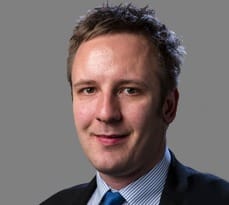Cambridge Judge alumnus Martin Schoenberg (MBA 2012) was in Paris for the historic climate conference. This agreement is not noise – it is a clear and unequivocal signal that the world will end unabated fossil fuel usage in the second half of the century and shows that political will – and technological opportunities – to address climate change have never been stronger.
When institutional investors started to deal with climate risk – and the consequences this has for many of the companies they invest in – it was difficult to read the contradictory noise of policy interventions to determine political will to address climate change. Some governments were acting, technologies were making progress, but key countries were only taking limited action to address the problem.
What could once be classified as noise has evolved into a clear, unequivocal and irreversible signal: in Paris, governments made it legally binding to hold temperature rise far below two degrees, and strive for one and a half degrees. They also made it legally binding to achieve greenhouse gas emissions neutrality in the second half of the century. Over time, emerging economies will move to economy-wide greenhouse gas emissions and limitation targets, global emissions will peak as soon as possible, and almost every country in the world will take measures to reign in emissions. Efforts by governments will only become stronger over time.
The institutional investors we represent have a fiduciary duty to achieve the best long-term risk-adjusted returns for their clients. Since institutional investors manage their assets and liabilities to pay out pensions as far as 40 or 50 years down the line, they take a keen interest in systemic risks such as climate change.
Information about the carbon exposure of investee companies is available. However, reporting standards for investee companies should be unified across the most important markets. This is why it is so significant that the Governor of the Bank of England, Mark Carney, in his role as chairman of the Financial Stability Board of the G20, secured a mandate to establish a climate disclosure task force. Investors need to know how deeply exposed some companies are, and investors need to know which steps companies are taking to transform.
The list of most exposed global companies is short and it is possible – even against a trend towards passively managed investments – to engage with those companies and encourage the kind of transition these companies need to make. We all will gain from the transition towards climate neutrality – but corporate boardrooms of exposed companies can longer justify complacency. It is time for bold steps. It is time for investee companies to start to act on what could be one of the greatest opportunities of our time.



